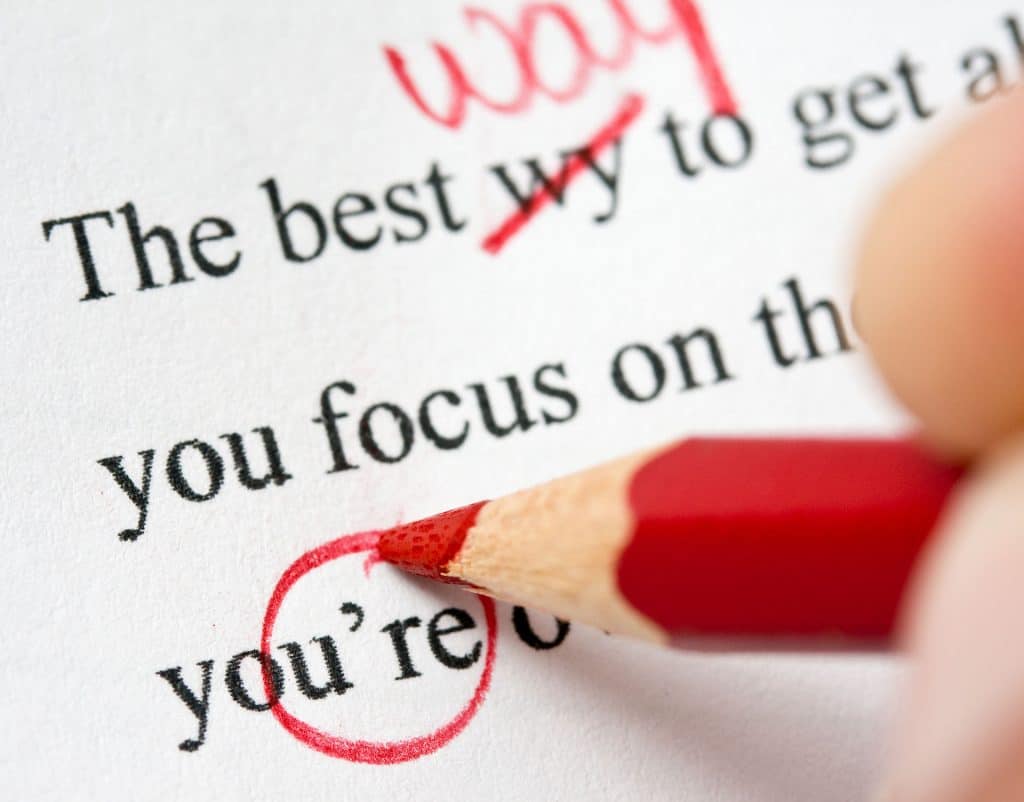Do people still mock English Majors? The ability to communicate with the written word is probably one of the most critical skills in virtually every field of human endeavor.
Scientists, mathematicians, artists, engineers, business people of every kind must be able to achieve competence with the written word to succeed. Consider virtually every field of human endeavor has a corresponding magazine or blog. People like to communicate and share ideas.
Whatever you do for a living, you might be called upon to write a report or sketch out through words a strategy at work. If you are a builder you might need to write a proposal or explain your plans. If you’re working for a non-profit you might need to write a grant application or a press release. Something as simple as a resume or cover letter requires some writing skills. Even the correct turn of phrase can make a tremendous difference in an email.
While the written word has proliferated exponentially with the wired world, the number of words are often limited, so skills in brevity are key. Here are a few tips to improve your written word.
Grammar, Spelling and Punctuation

Anyone can obtain an app that will help you correct grammar, punctuation, and spelling which are key in written communications. Most importantly, this makes it’s so there is never an excuse for sloppy grammar. Poor grammar is not a good icebreaker. It displays a disrespectful and lazy attitude on the part of the writer. It demonstrates a lack of self-respect as well. If you rely too much on the app, you may make even greater errors. The best practice is to review your writing and make any necessary revisions and then run the app. Many times you are provided alternatives, so take the time to study your use of language. If you pay attention to the app, you begin to see how it thinks and the writing style it prefers. For example, most apps will change the passive into the active voice. This is a very good way to improve your use of grammar.
Let’s remember, CV, resume, or cover letters containing spelling or grammatical mistakes are usually rejected immediately.
Edit your work

Until you learn to edit your work, you will never become a good writer. Only you can improve your skills in the written word. Therefore, very few people get it right the first time. It is enough that you get your idea on paper so to speak, no matter how poor the writing is. The idea is the thing. Once you get that, the most important thing, down, then you begin the process of writing.
In addition, part of editing is proofreading. It is so much harder to see your own mistakes than to see someone else’s. There are many proofreading methods, including reading backward. But even if you use the Grammarly app, the best method is to have someone else you trust to proofread your work.
When you are just getting started on improving your writing consider, when you think a piece is ready to go, it may just be your first draft. Good writers always slow down and spend as much time editing as they do writing the first draft.
Consider your audience

Always consider your audience. The more you think of or even research your audience, the better you will be able to communicate to them. This strategy also develops mutual empathy which is the key to effective communication. Considering your audience is one of the most important points of writing well.
Plan your work

Make an outline even if it’s a few notes on a napkin. Larger projects might require a detailed and annotated outline that may take longer to construct than the writing itself. Treat the written word like a project and expect there to be planning. Everyone does it differently; make it your own.
Focus your attention

If you want the reader to focus on something important about you or the subject of your work, then you and and your work must be focused. That can be worked out in the above plan or outline or your work. Your title, and every lead sentence and finishing sentence of every paragraph, should emphasize the critical points and conclusions you are advocating. Remember that brevity requires aim and precision.
Use plain and simple language

Use plain and simple language whenever possible. Most of the time, if we can’t explain something in plain and simple terms it’s because we don’t really understand it. While this is not always the case in a very complex world, the process of writing down an idea in its simplest terms requires a lot of thought. Thinking is hard work. It’s a process that definitely will improve your mind.
Take a break and wait until tomorrow to publish

Are you busy? Notwithstanding, the best medicine for writing well is writing often….the second best medicine is not writing. It can be really helpful to the creative process to take a break and change your focus. Stop and take a breath and allow your resting mind to do its thing. If you are not otherwise constrained, no matter how good you feel about your work at the end of the day, wait until tomorrow. You’ll be amazed at what you’ll find.
Read, read, read

Do you like to read? Reading is the easiest and best way to learn to write. As you know, the written word and reading go hand in hand. There is tremendous value in being exposed to the great writers through literature. Read the prose of the best of writers to learn what great writing and storytelling looks like. Try exploring a library or a bookstore.
Make it a habit

In conclusion, how do you practice writing? The beauty and uniqueness of writing is in its universal utility. These points on how to improve your written word are a great starting point. Consider taking up letter writing with friends and family. Use a pen and ink. You can volunteer to take notes at meetings. Take a little more care in writing routine reports, emails and text messages. Even a single sentence can use revising and improving. Pay attention to what others write on the web. Run some of their writing through an app just for fun. It’s better to learn from others’ mistakes, or at least less expensive. There are many opportunities to practice writing online in many venues, but you may also want to begin keeping a diary or log (use a pen or pencil.)
Want to discuss the written word further? The coaches at Ignite Your Potential are here to help. Reach out and take advantage of our complimentary 25-minute phone sessions.
Ready to shift into overdrive? Try our new Career Course, designed to help find an engaging, fun, and fulfilling career.



